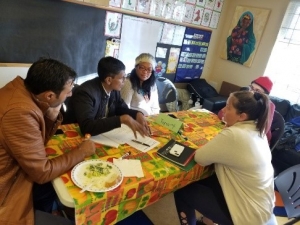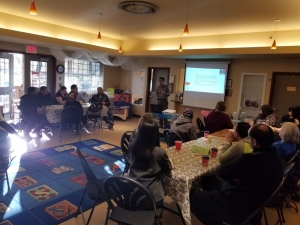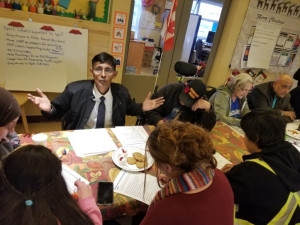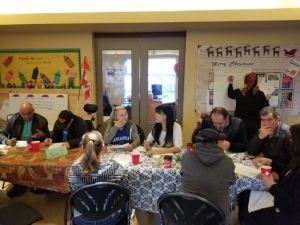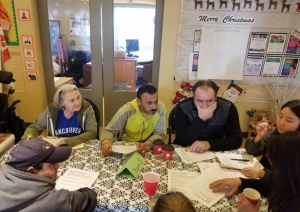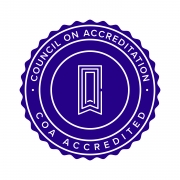Accessibility Focused Community Meeting
BC Framework for Accessibility Legislation
Langley Community Services Society was delighted to host an accessibility focused community meeting on Friday, November 22nd, to discuss the framework for the new proposed British Columbia Accessibility Legislation. This important community meeting initiative was funded through and held in partnership with SPARC BC. Attendees were a cross-section of those residents of British Columbia who would be most affected by this new legislation – those who identify as a person with disability, have a loved one with a disability or who work closely with persons with disabilities. The contributors were given an opportunity to share their perspectives on a variety of topics related to accessibility over a hot lunch provided by LCSS. The conversation was lively, informative and centered around the aspiration to work toward creating a more welcoming, accessible and supportive
community for people with disabilities in BC.
SPARC BC expressed well why this initiative is so important: “There are more than 926,000 British Columbians over the age of 15 with some form of disability. This represents nearly 25% of the population. As the population ages, the number of people with disabilities and the severity of their disabilities are likely to increase. “The Ministry of Social Development and Poverty Reduction is committed to developing new laws, standards, and policies to better
support people with disabilities to live with dignity and to meaningfully participate in their communities. Accessibility legislation would empower government, persons with disabilities, and the broader community to work together to identify, remove, and prevent barriers.”
Accessibility Focused Discussion
Melvin Magno, from the Settlement, Employment & Integration Services program, led the open forum and encouraged everyone to share their
opinions, experiences and feedback on the proposed legislation. The participants, approximately 20 in total, were divided into four groups and facilitators rotated through each group to explore four main topics that the legislation will address.
- Accessibility Through Legislation- What is of most value to you? What can be improved upon and how
do we get there? This topic looked at which resources were most important to people with disabilities in
their communities and how they access those resources. - Accessibility Standards – How can we ensure that a person with disability can participate fully, equally and
with self-reliance as a member of society? This topic asked attendees to think about inclusive employment,
education, public transit and public spaces. - Governance and Enforcement of Accessibility – What is the best way to ensure that accessibility is regulated?
This topic discussed the need for boards, councils and commissioners to govern and regulate the legislation
and how to move forward implementing the standards and governance. - Cultural Change – How do we change the cultural perspective to align with the accessibility legislation? This
topic is perhaps the one with the most day to day impact on those with disabilities. The discussion revolved
around improving mindset, inclusivity, education and eradicating stereotypes and prejudices.
Feedback from the Meeting
When asked why she felt it was important to attend this community meeting, attendee Lisa Johnston said the following:
“There are so many people that fall through the cracks when it comes to accessibility and that needs to change. As a person who was diagnosed as an adult with a learning disability, but who is mostly independent, the resources that I have access to are appallingly limited. It’s important to me that all people with disabilities have the opportunity to thrive.
Better education for people with disabilities, professionals, family members and the public is the crux of all of this – with better education comes greater accessibility, improved support, less stigma and prejudice and more inclusiveness. Those who are formulating this new legislation need to hear from those who will be most impacted by it or there’s no point because nothing will truly change.”
Community Meeting Results
In all areas, the feedback was phenomenal and incisive. Each person in the room brought with them a wealth of experiences that helped shape the discussion and will no doubt be invaluable to Victoria in establishing a comprehensive Accessibility Legislation. Several key points were touched on by multiple participants and were areas of profound impact, including:
- Gaining support and feeling welcome in the community
- Simpler processes to access much needed resources – including income assistance, education and community support
- Government-funded tools and resources (ie: transportation; regulation and funding for service animals)
- Funding, incentives and enforcement to encourage businesses to meet accessibility needs
- Education for public and professionals working alongside people with disabilities
- Support in funding, counselling and education for families of people with disabilities
- Better resources and support for persons with disabilities of all ages and independence levels (ie: those
diagnosed as adults with cognitive disabilities, elderly with age-related disabilities, mental illness)
Wrap Up!
Toward the end of the meeting, the final topic was conducted as a full group discussion. Melvin explained the proposed approach, the definition of a person with disability (including physical andmental aspects), the framework the province will be using to develop the legislation and how those who are interested can be further involved in the process. The proposed approach will focus on inclusion, adaptation, diversification, collaboration and creating self-determination and will include areas that past legislation may have neglected.
The forum was an unqualified success in the minds of the facilitators and participants and furthered the momentum toward building a more understanding and inclusive community for all residents of British Columbia. It offered an important platform for those who will be impacted by this legislation to share their thoughts and ensure that this legislation will truly support their needs. Many of the experiences shared were vulnerable and unique to the community of persons with disabilities and highlighted what is most important in their daily lives.
Thank You!
LCSS would like to express a warm thank you to all participants who took the time to join the discussion and encourages all of those with disabilities to continue to speak out and make their voices heard on the topic of accessibility.
For more information on how you can help make British Columbia a better, healthier and more accessible community
for all visit www.sparc.bc.ca
LCSS also offers an Employment Program for Youth 30 and under with a focus on abilities. Click here to check out our Skills to Success Program

